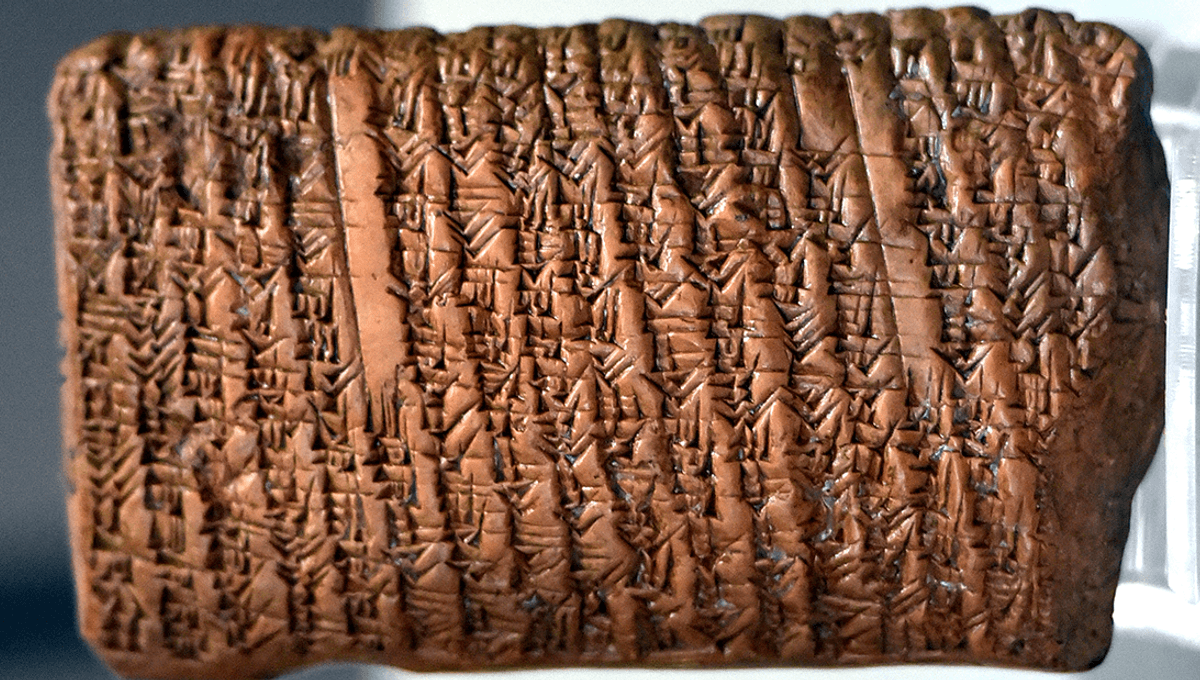Study math for long enough and you will likely have cursed Pythagoras’s name, or said “praise be to Pythagoras” if you’re a bit of a fan of triangles.
But while Pythagoras was an important historical figure in the development of mathematics, he did not figure out the equation most associated with him (a2 + b2 = c2). In fact, there is an ancient Babylonian tablet (by the catchy name of IM 67118) which uses the Pythagorean theorem to solve the length of a diagonal inside a rectangle. The tablet, likely used for teaching, dates from 1770 BCE – centuries before Pythagoras was born in around 570 BCE.



It’s legend that Babylon was destroyed most likely taking all of that knowledge with it. I’m surprised that this tablet survived.
Nah. There’s heaps of Babylon tablets in existence. Most of them very mundane - how much beer was fed to your slaves last month, how many goats were born, that sort of thing.
Scribes usually kept tablets damp so the clay was still supple enough to take an imprint from a reed (cuneiform) but often the stuff we find archeologically is the burned remains of buildings which have been built over later - but in the burning the tablets have been “fired”.
Sorry but no…Babylon came to crisis quite quickly having two major times, when society and culture developed. Even the there are cultural and religious references to Babylon as far from 1st century BC. So, Babylon wasn’t destroyed at all, came towards the end for the exact reason of all civilizations of middle east and orient at the time: internal struggles and bad actions from kings
Those are the same reasons that nearly every civilization in history ended because of. It is much more common for great civilizations to collapse from internal pressures than it is for them to be conquered.